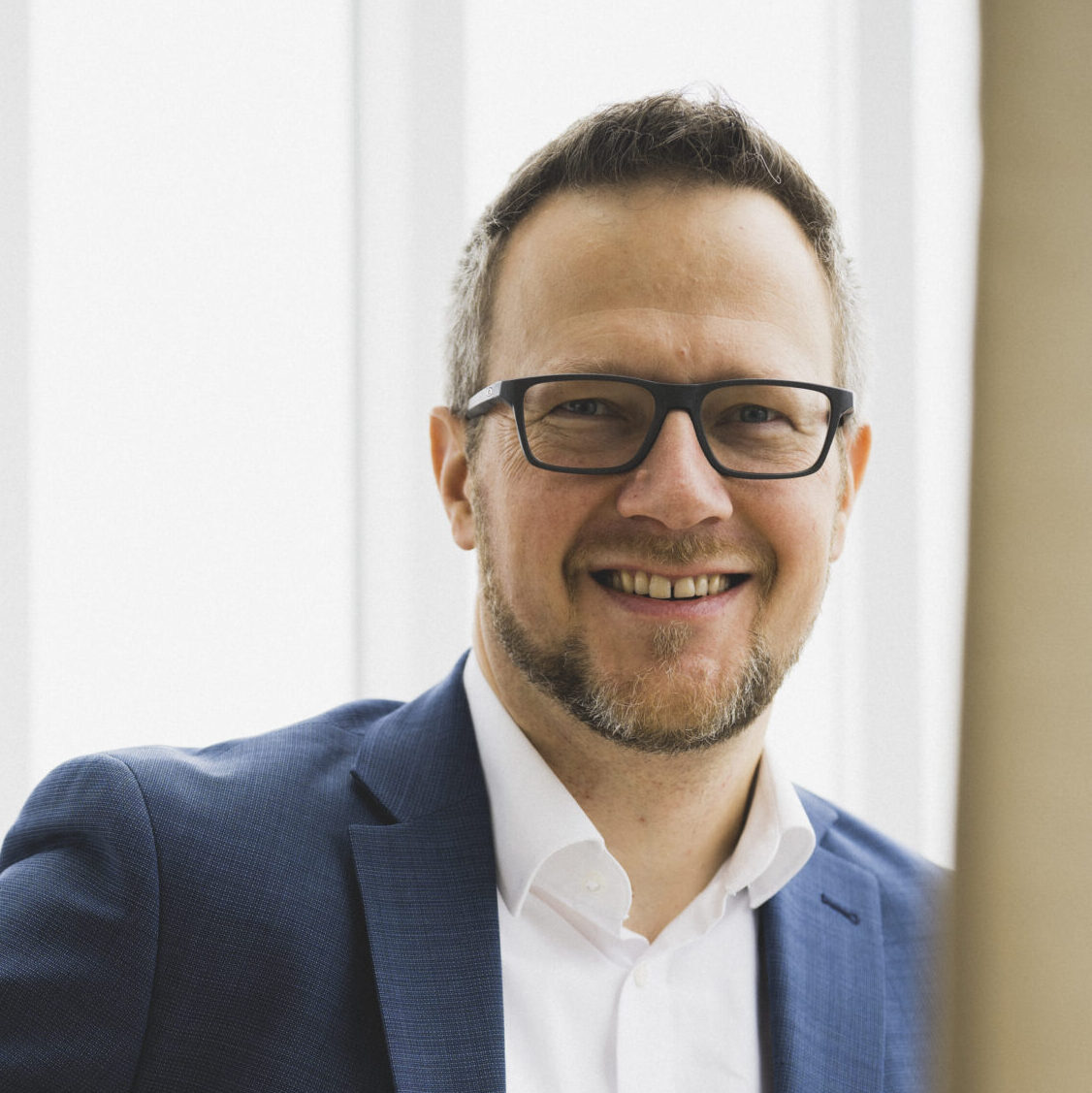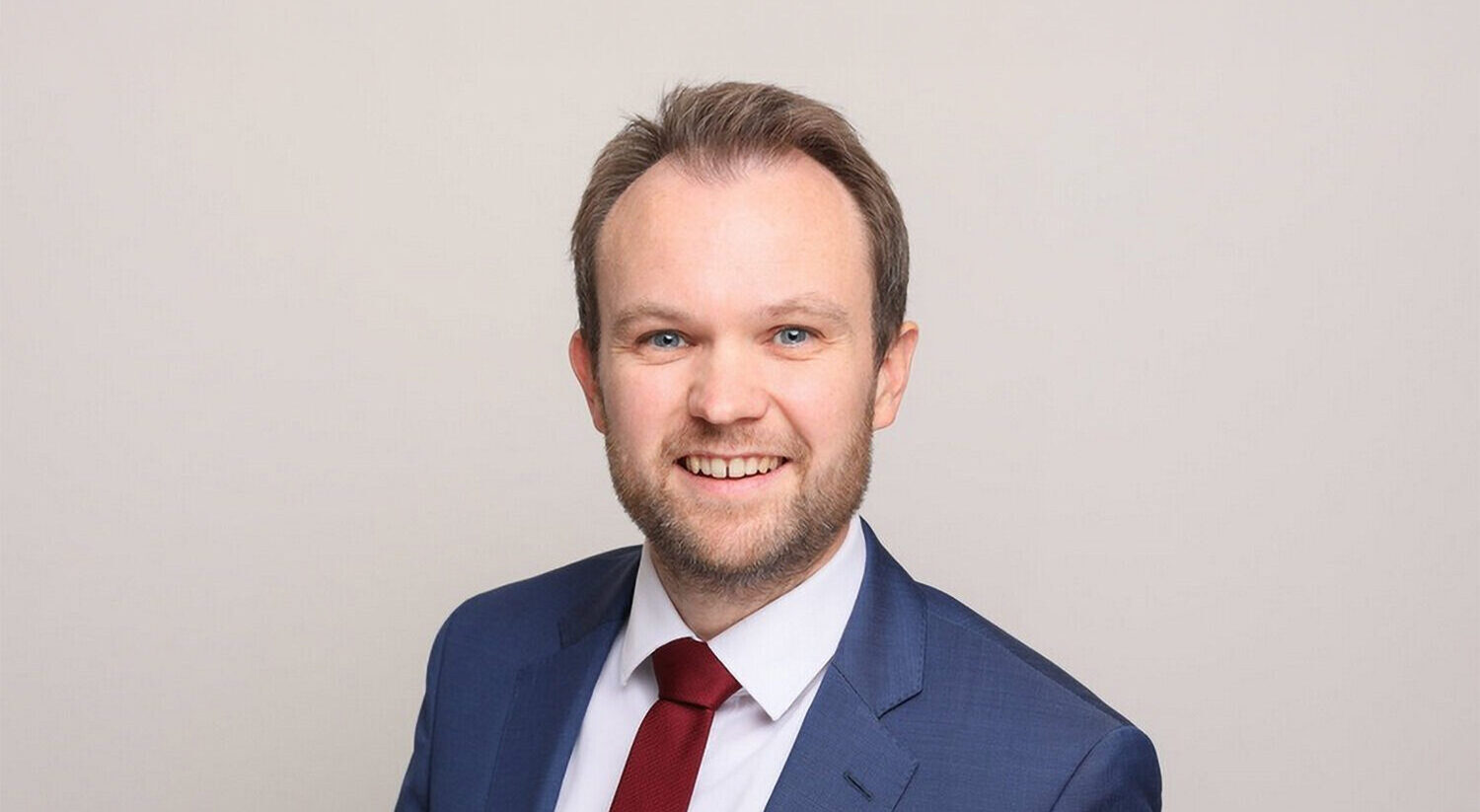Fathers in care work
View of care work
Patrick, how do you define care work and what does it mean to you personally?
Care work is a matter of course for me. In short, for me it means being there for the people who are important to me and looking after them.
Timo, to what extent has your view of care work changed since you became a father?
Basically, my view of care work started to change when my wife was pregnant for the first time and we started to think about how we could balance family and work in the future. Since then, we have spent many evenings discussing the topic, exchanging male and female views and positions and coming closer together in the process. This process continues.
What is it like for you Martin?
I was actually surprised by how many things you have to do and think about around the clock while looking after the children and not actually getting anything done. But I’m sure that will get better when they’re older (I’ve been telling myself that for five years…).
Have the courage! Work together with your partner, colleagues and managers to find the best way to reconcile work and family life.
Associate Partner/Lawyer/Tax Consultant
Implementing balance between work and family
Timo, you are no longer working full-time. How has that worked out for you in your job?
Basically, it works very well. The job as an auditor can be organised flexibly on many days. In my opinion, it is very important to be transparent about the circumstances both internally and towards the client. I currently work 80%. I take a part-time day on Wednesdays and work full-time on the other days. The team and most of my clients are aware of this and absolutely respect it. Of course, I also receive emails and phone calls on my part-time day. But if the issues are not urgent, I respond to them the next day.
And you Martin?
For the last two years, I’ve worked part-time on parental leave and looked after the kids three afternoons a week. At the beginning, it was even more difficult to explain to colleagues that a telco at 4 p.m. was inconvenient because you were taking the three-year-old to gymnastics. Fortunately, mobile working now works so well that urgent things can still be done in the evening.
Timo, are there any prejudices or stereotypes that you have encountered since you started working part-time?
I wouldn’t say that I was confronted with any major prejudices. But certain stereotypes are unmistakably present. In my environment, it is still the exception rather than the rule that fathers also take on a noticeable share of the care work. In fact, I get a lot of positive feedback along the lines of ‘great that you’re doing this’. I’m always happy to receive such reactions. At the same time, however, they also show that it is not yet common for fathers to take on care work. My wife, who took on a significantly higher proportion of care work in the first few months after the births of both of us due to maternity leave and parental leave alone, didn’t get such reactions – it’s just taken for granted with mothers. That has to change.
Patrick, what did you particularly enjoy about your parental leave?
Children change everything. You, your partner, how you perceive things… Parental leave was like a second phase of getting to know each other. Of course, it wasn’t always all sunshine and roses, but the vast majority of it was!
Timo, how does Rödl support you in achieving a better work-life balance?
My team totally respects the fact that I only work 80% because of my care work, for example by being considerate when I am not immediately available at certain times. At the same time, we at Rödl offer flexible working time models that make it easier for parents to reconcile their care work and career.
Martin, when you think about your everyday life with your wife and children. What does the shared care system look like for you?
My wife’s office days start earlier, so I take the children to nursery in the morning. On Mondays and Tuesdays, my wife picks up the kids and I’m in the office, sometimes for longer if necessary. On the other days, I’m out and about with the children from 3 pm.
And you Patrick?
Even if we have never divided it super strictly, a certain division has become established. My wife is the planner. She organises our social life (meeting friends, family visits, events, etc.). I’m more of a ‘handyman’. I start the day early, get the kids ready for school and daycare in the morning, take them to sports or music school in the afternoon, etc.. We divide the household up according to our respective strengths. Law and order are my wife’s responsibility. I am responsible for the physical well-being and functionalities.
I believe that due to our socialisation, the classic division of roles - the woman takes care of the household and children while the man takes care of the (financial) provision of the family - is still anchored in many fathers' minds, even if only subconsciously. I can also say for myself that I was initially very reluctant to address and implement the topic in my team.
Partner/Auditor/Tax Consultant
Equal rights in care work
Timo, what do fathers gain if they share the care work fairly with their partner?
As well as enjoying wonderful moments with my children, it also gives me a good feeling to take on responsibility in my private life. In our small family circle, this leads to an equal distribution of tasks. I don’t want to overstate it, but I also have the feeling that we are making a contribution to society, even if it’s just by setting a good example. Furthermore, in times of a shortage of skilled labour, it is becoming increasingly important for mothers to participate in working life as much as possible.
What do you think Martin?
They are very close to the children’s development, hear their worries and problems and become fully-fledged confidants and contact persons and can be role models – at least that’s the case so far, maybe the five-year-old will be totally annoyed by me in ten years’ time… In any case, the family situation is much more balanced and relaxed when both parents are available as a point of contact for the kids and can also give each other feedback from time to time.
In your opinion, how are the involvement of fathers in care work and women’s career opportunities related Martin?
In our case, my wife would not be able to do her current, very exciting job as a digitalisation manager in the same way if she were fully responsible for the children on her own. We don’t have any grandparents nearby who we could make grandchildren’s time appealing to, so childcare outside of daycare hours is essentially up to us parents. For all-day workshops or when the children are ill, my wife also needs her back free from time to time, and that works particularly well because the whole family is a well-rehearsed team.
Patrick, what advice would you give to fathers or fathers-to-be who are considering whether and for how long they should take parental leave or want to reduce their working hours?
Our children are growing up so fast, I’ve only really realised how quickly time flies since our children were born. Especially the first time after birth up to primary school age (maybe even beyond – but I’m not there yet), you can’t make up for it. So my advice would be to talk openly with your partner about what you want. And if it’s right for you (both of you), then make time for your family, for your children and for your partner.
It was always clear to me that I wanted to take parental leave and be there for my wife and children, especially after the birth. My managers and the team gave me their full support.
Associate Partner/Tax Consultant
Social Change
What changes would you like to see in society’s perception of male care work, Timo?
As a society, we should eventually get to the point where male care work is no longer exceptional. In my opinion, the Scandinavian countries are already well ahead of us in this respect. In Sweden, for example, the distribution of care work is already much more equal between women and men.
Patrick?
I don’t think it’s the ‘male care work’ that receives too little attention. If care work in general were more highly valued, it probably wouldn’t matter who did it.
And you Martin?
The decision to be there for one’s family should be seen as a matter of course and not as a decision against professional achievement. This applies to both fathers and mothers. I think we all need to remind ourselves that good work performance is not just about how many evenings and weekends you spend in the office. In the long term, you can only deliver well if other issues are also allowed to be important, such as your private environment and your own health. And equal career opportunities for mothers should also be a matter of course. This will only work if fathers also take full responsibility for bringing up and caring for their children.
Thank you for the interview!

